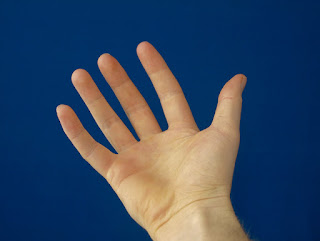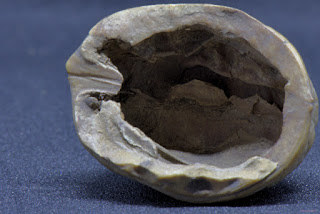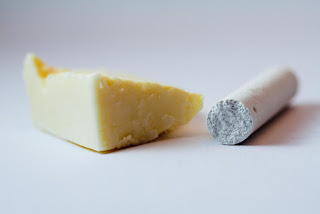This sounds a little like “doesn’t have a leg to stand on,” but its meaning is completely different.
Someone who is legless is extremely drunk.
Examples
“Hospital medics are regularly abused and attacked by legless patients, while police officers are now a routine sight inside Accident and Emergency departments.”
“The UK government wants to slap boozy and disruptive travellers with instant fines worth hundreds of pounds to deter the culture of getting legless before getting airborne.”
“This category consists of 24 million adults over the age of 18, but before you place yourself in this category because you like to get legless every weekend, let’s have a look at just what those at the top are actually drinking.”
This term can also be used in a literal sense to mean having no legs (like this earthworm).
e.g. “High-speed camera reveals the secrets of a legless larva’s leap”
Photo credit: Kenneth Cole Schneider (Creative Commons)
I blog about editing, proofreading, and the English language.
Comments and suggestions are welcome.
Many of the phrasal verbs and idioms addressed in this blog were highlighted during an English conversation class I ran a few years ago. I’m grateful to those who attended this for helping me see my native language from a different perspective.
Most of the examples used are quotes from news articles. Click on the links (in yellow) to view the full article.
Friday, 28 February 2020
Thursday, 27 February 2020
DOESN’T HAVE A LEG TO STAND ON
We say that someone “doesn’t have a leg to stand on” if they have no facts or reasons that justify their argument or actions.
Examples
“John Buckby, a trade mark attorney and intellectual property lawyer at Gateley Legal in Leicester, stepped in to help Mr Foster, claiming the trust didn’t have a leg to stand on.”
“The sad thing is, if you do get in trouble at work for a social media post, you probably don’t have a leg to stand on.”
“He assures the Platts that Marion doesn’t have a leg to stand on.”
Photo credit: Julie Falk (Creative Commons)
Examples
“John Buckby, a trade mark attorney and intellectual property lawyer at Gateley Legal in Leicester, stepped in to help Mr Foster, claiming the trust didn’t have a leg to stand on.”
“The sad thing is, if you do get in trouble at work for a social media post, you probably don’t have a leg to stand on.”
“He assures the Platts that Marion doesn’t have a leg to stand on.”
Photo credit: Julie Falk (Creative Commons)
Wednesday, 26 February 2020
OVER THE TOP
We use the phrase “over the top” to describe something that’s excessive.
“Reactions to new beach building ‘over the top’”
“Take a look at some of the most over-the-top homes below...”
This phrase dates from the late 1900s [1].
Photo credit: Nicolas Hoizey (Creative Commons)
[1] “over the top” in The American Heritage Dictionary of Idioms, by Christine Ammer. 2nd ed. Houghton Mifflin, 2013.
Tuesday, 25 February 2020
ON TOP OF THE WORLD
If you’re on top of the world, you’re extremely happy.
Examples
“I needed a hand and a bit of persuasion to drag myself up the final section, but my red-faced efforts were rewarded with fabulous views across the city and Firth of Forth, making me feel on top of the world.”
“A Rosyth cyclist is feeling on top of the world after becoming a global champion in a two-wheel track competition.”
“Music scholar Sherman is truly ‘on Top of the World’”
The song “Top Of The World” was released by The Carpenters in 1972:
Photo credit: Elias Rovielo (Creative Commons)
Examples
“I needed a hand and a bit of persuasion to drag myself up the final section, but my red-faced efforts were rewarded with fabulous views across the city and Firth of Forth, making me feel on top of the world.”
“A Rosyth cyclist is feeling on top of the world after becoming a global champion in a two-wheel track competition.”
“Music scholar Sherman is truly ‘on Top of the World’”
The song “Top Of The World” was released by The Carpenters in 1972:
Photo credit: Elias Rovielo (Creative Commons)
Friday, 21 February 2020
TO GO TO TOWN
You might go to town to work, shop, or socialise; however, the phrase “to go to town” is also used as an idiom meaning to do something extremely enthusiastically or thoroughly.
Examples
“Shops in Brighton go to town with festive window displays”
“Usborne have gone to town with publicity for the book, sending out review copies wrapped in a fictionalised Edwardian map of Cambridge”
“However, you can really go to town on the flavour combinations.”
“Chloe started by painting the cupboards a dark green, then went to town on the potted plants.”
Photo credit: Tom Magliery (Creative Commons)
Examples
“Shops in Brighton go to town with festive window displays”
“Usborne have gone to town with publicity for the book, sending out review copies wrapped in a fictionalised Edwardian map of Cambridge”
“However, you can really go to town on the flavour combinations.”
“Chloe started by painting the cupboards a dark green, then went to town on the potted plants.”
Photo credit: Tom Magliery (Creative Commons)
Wednesday, 19 February 2020
TO BE TOAST
To be toast means likely to be defeated or destroyed.
“Earth will be toast, but Pluto will be balmy and brimming with the same sorts of complex organic compounds that existed when life first evolved on our own planet.”
“As the deadly predator constantly learns more about you to track you successfully, this game ensures that you always stay on the move and also be as inventive as possible while hiding or journeying through an area – because, if the Alien spots you, you’re toast!”
“If it gets as high as they’re saying, these trailers are going to be toast”
“Viewers, who adored the handsome character, have refused to accept he’s toast.”
“Things need to happen in the next seven days or otherwise we, and other consultancies, will be toast.”
Photo credit: Rob Allen (Creative Commons)
“Earth will be toast, but Pluto will be balmy and brimming with the same sorts of complex organic compounds that existed when life first evolved on our own planet.”
“As the deadly predator constantly learns more about you to track you successfully, this game ensures that you always stay on the move and also be as inventive as possible while hiding or journeying through an area – because, if the Alien spots you, you’re toast!”
“If it gets as high as they’re saying, these trailers are going to be toast”
“Viewers, who adored the handsome character, have refused to accept he’s toast.”
“Things need to happen in the next seven days or otherwise we, and other consultancies, will be toast.”
Evan Morris states in his blog, The Word Detective, that the first use of toast in this context was in the 1985 film Ghostbusters: as Bill Murray prepares to fire his anti-protoplasm gun, he shouts, “this chick is toast.”
Photo credit: Rob Allen (Creative Commons)
Monday, 17 February 2020
STEAL THE SHOW
This was prompted by a Facebook memory from nine years ago. I daren’t say more about that, because if I did I would be toast. (There’s a phrase for another post.)
Someone who steals the show attracts the most attention and praise.
Examples:
“Snowdrops steal the show at Quarry Bank”
“‘The top three bands were really close, and no-one really stole the show,’ adjudicator Paul Holland told the audience before the announcement of the prizes.”
“Pasalic then stole the show in the 59th minute by curling a sensational strike into the top corner 19 seconds after coming on as a substitute.”
This phrase originated in the theatre but is now also used in other contexts [1].
Photo credit: Amadej Trnkoczy (Creative Commons)
[1] “Steal” in Brewer's Dictionary of Phrase and Fable, edited by Susie Dent. 19th ed. Chambers Harrap, 2012.
Someone who steals the show attracts the most attention and praise.
Examples:
“Snowdrops steal the show at Quarry Bank”
“‘The top three bands were really close, and no-one really stole the show,’ adjudicator Paul Holland told the audience before the announcement of the prizes.”
“Pasalic then stole the show in the 59th minute by curling a sensational strike into the top corner 19 seconds after coming on as a substitute.”
This phrase originated in the theatre but is now also used in other contexts [1].
Photo credit: Amadej Trnkoczy (Creative Commons)
[1] “Steal” in Brewer's Dictionary of Phrase and Fable, edited by Susie Dent. 19th ed. Chambers Harrap, 2012.
Sunday, 16 February 2020
THE LION’S SHARE
The lion’s share is the largest share or portion of something.
Examples
“The county council takes the lion’s share of the total council tax bill at around 80 per cent.”
“No candidate declared outright victory in Iowa, although a few strongly implied, with unofficial tallies, that they had won the lion’s share of delegates.”
“When you invest in a career working for someone else, the lion’s share of the value you create goes to your employer.”
While the above examples are taken from news items, my inspiration for this post came from Tan Twan Eng’s novel, The Garden of Evening Mists [1]:
“The Asian Co-Prosperity Sphere was now in place – with Japan enjoying the lion’s share of the prosperity.”
Set in Malaysia, this was recently made into a film. I learned much history from this book, and I was awed by the author’s striking use of language.
What is the origin of this phrase? My first thought – that no one would want to argue with a lion – was confirmed by an entry in Brewer’s Dictionary of Phrase and Fable, which states that it originates from Aesop’s Fables [2]. In the version I have, the title of the story is “The Lion’s Share.”
“The Lion went once a-hunting along with the Fox, the Jackal, and the Wolf. They hunted and they hunted till at last they surprised a Stag, and soon took its life. Then came the question how the spoil should be divided. ‘Quarter me this Stag,’ roared the Lion; so the other animals skinned it and cut it into four parts. Then the Lion took his stand in front of the carcass and pronounced judgment: ‘The first quarter is for me in my capacity as King of Beasts; the second is mine as arbiter; another share comes to me for my part in the chase; and as for the fourth quarter, well, as for that, I should like to see which of you will dare to lay a paw upon it.’ ‘Humph,’ grumbled the Fox as he walked away with his tail between his legs; but he spoke in a low growl .‘You may share the labours of the great, but you will not share the spoil.’” [3]
Photo credit: Mathias Appel (Creative Commons)
[1] Eng, Tan Twan. The Garden of Evening Mists (p. 262). Canongate Books. Kindle Edition.
[2] “Lion” In Brewer’s Dictionary of Phrase and Fable, edited by Susie Dent. 19th ed. Chambers Harrap, 2012.
[3] Aesop. Aesop’s Fables (Kindle Locations 37–43). Kindle Edition.
Examples
“The county council takes the lion’s share of the total council tax bill at around 80 per cent.”
“No candidate declared outright victory in Iowa, although a few strongly implied, with unofficial tallies, that they had won the lion’s share of delegates.”
“When you invest in a career working for someone else, the lion’s share of the value you create goes to your employer.”
While the above examples are taken from news items, my inspiration for this post came from Tan Twan Eng’s novel, The Garden of Evening Mists [1]:
“The Asian Co-Prosperity Sphere was now in place – with Japan enjoying the lion’s share of the prosperity.”
Set in Malaysia, this was recently made into a film. I learned much history from this book, and I was awed by the author’s striking use of language.
What is the origin of this phrase? My first thought – that no one would want to argue with a lion – was confirmed by an entry in Brewer’s Dictionary of Phrase and Fable, which states that it originates from Aesop’s Fables [2]. In the version I have, the title of the story is “The Lion’s Share.”
“The Lion went once a-hunting along with the Fox, the Jackal, and the Wolf. They hunted and they hunted till at last they surprised a Stag, and soon took its life. Then came the question how the spoil should be divided. ‘Quarter me this Stag,’ roared the Lion; so the other animals skinned it and cut it into four parts. Then the Lion took his stand in front of the carcass and pronounced judgment: ‘The first quarter is for me in my capacity as King of Beasts; the second is mine as arbiter; another share comes to me for my part in the chase; and as for the fourth quarter, well, as for that, I should like to see which of you will dare to lay a paw upon it.’ ‘Humph,’ grumbled the Fox as he walked away with his tail between his legs; but he spoke in a low growl .‘You may share the labours of the great, but you will not share the spoil.’” [3]
Photo credit: Mathias Appel (Creative Commons)
[1] Eng, Tan Twan. The Garden of Evening Mists (p. 262). Canongate Books. Kindle Edition.
[2] “Lion” In Brewer’s Dictionary of Phrase and Fable, edited by Susie Dent. 19th ed. Chambers Harrap, 2012.
[3] Aesop. Aesop’s Fables (Kindle Locations 37–43). Kindle Edition.
Saturday, 15 February 2020
SINGLE-HANDED
The term “single-handed” (or “singlehanded”) can be used in two ways.
(1) It can mean used or intended to be used with one hand.
Examples
“The dial system is designed for single-handed use, so you don’t need to stop your bike every time you need to adjust the fit.”
“However, he always puts in maximum effort and is capable of taking on a team single-handed.”
(1) It can mean used or intended to be used with one hand.
Examples
“The dial system is designed for single-handed use, so you don’t need to stop your bike every time you need to adjust the fit.”
“That aside, both browsers can be easily used single-handed.”
“KeyBlock is easy to use single-handed, leaving your other hand free to carry the shopping, open the door for your partner or keep your child close.”
(2) Alternatively, it can mean done alone, without help from anyone else.
Examples
Examples
“However, he always puts in maximum effort and is capable of taking on a team single-handed.”
“The Next Generation was the series that gave us shipboard counselling (a questionable idea), a crew that liked each other (a catastrophically mistaken idea) and Patrick Stewart as Jean-Luc Picard, who held the entire farrago together, pretty much single-handed, for seven seasons.
“As penance for my reservations, I am now planning to row, single-handed, from the mouth of Loch Sunart across the Sound of Mull to Tobermory.”
Photo credit: Moss (Creative Commons)
Photo credit: Moss (Creative Commons)
Friday, 14 February 2020
IN A NUTSHELL
To say something “in a nutshell” is to say it briefly, using as few words as possible.
Examples:
“And there, in a nutshell, is the story of the Italian cafes in Wales.”
“In a nutshell, extracurriculars are ‘where parents network with each other,’ Dr. Calarco said.”
“In a nutshell, she says, the course helped her understand how to view life through a positive rather than a negative lens.”
A nutshell has been used to symbolize compactness since the late 16th century and is mentioned in this context in Shakespeare’s Hamlet [1].
Photo credit: Sylvie Fee Matter (Creative Commons)
[1] Cresswell, Julia. “nut” in The Oxford Dictionary of Word Origins. Oxford University Press, 2009.
Tuesday, 11 February 2020
CHALK AND CHEESE
If we say that two people, or things, are like chalk and cheese, we mean that they are completely different from each other.
Examples:
“Airbnb and Uber are chalk and cheese”
“Me and my brother are autistic, and - as my mother would say - we are chalk and cheese.”
“‘Even though they are half-brothers, they are chalk and cheese,’ she says of the two horses. ‘This one needs a lot of motivation, a bit like a labrador.’”
Why chalk and cheese?
Although chalk and cheese may appear similar, they have completely different properties [1]; hence, this idiom is often used to refer to two people or things of the same type that have different characteristics, as in the above examples.
Photo credit: poppet with a camera (Creative Commons)
[1] “chalk” in Oxford Dictionary of English Idioms, edited by Ayto, John. Oxford University Press, 2009.
Examples:
“Airbnb and Uber are chalk and cheese”
“Me and my brother are autistic, and - as my mother would say - we are chalk and cheese.”
“‘Even though they are half-brothers, they are chalk and cheese,’ she says of the two horses. ‘This one needs a lot of motivation, a bit like a labrador.’”
Why chalk and cheese?
Although chalk and cheese may appear similar, they have completely different properties [1]; hence, this idiom is often used to refer to two people or things of the same type that have different characteristics, as in the above examples.
Photo credit: poppet with a camera (Creative Commons)
[1] “chalk” in Oxford Dictionary of English Idioms, edited by Ayto, John. Oxford University Press, 2009.
Monday, 10 February 2020
CLAPTRAP
The noun “claptrap” means talk or ideas that are nonsensical.
Examples:
“Moreover, they should endeavour to distinguish the evidence from the claptrap around the pseudo-syndrome of popular myth . . .”
“Civil service correspondence from 1979 — which has been placed in the National Archives at Kew — shows there were calls for ministers to launch an unequivocal public attack on ‘flying saucer claptrap’.”
“Social media has been a godsend for anti-vaxxers and those pushing pseudoscientific claptrap, researchers say.”
The term originates from an 18th century theatrical device for eliciting applause and was first used in its current context in “Don Juan” by George Byron [1].
“Besides, I hate all mystery, and that air
Of clap-trap which your recent poets prize” [2]
Examples:
“Moreover, they should endeavour to distinguish the evidence from the claptrap around the pseudo-syndrome of popular myth . . .”
“Civil service correspondence from 1979 — which has been placed in the National Archives at Kew — shows there were calls for ministers to launch an unequivocal public attack on ‘flying saucer claptrap’.”
“Social media has been a godsend for anti-vaxxers and those pushing pseudoscientific claptrap, researchers say.”
The term originates from an 18th century theatrical device for eliciting applause and was first used in its current context in “Don Juan” by George Byron [1].
“Besides, I hate all mystery, and that air
Of clap-trap which your recent poets prize” [2]
[1] Knowles, Elizabeth. “claptrap” in The Oxford Dictionary of Phrase and Fable. Oxford University Press, 2005.
[2] Byron, George Gordon. Don Juan (p. 120). Kindle Edition.
Photo credit: Jase Hill (Creative Commons)
Sunday, 9 February 2020
THE LAST . . .
The phrase “the last” can be used to refer to something that is extremely undesirable or unlikely.
Examples:
“You want to push yourself, learn new tricks and progress your riding, but the last thing you want is to get injured and miss out altogether.”
“They’re not known for their speed but if frightened they can gallop at up to 25 miles an hour – and the last thing you want is to get in the way of a speeding badger!”
“In fact, she was probably the last person I’d expect to become a vegan.”
“The last person you’d have expected to find out there among the seals, blizzards, bears and ice storms was a woman hailing from privileged, upper-class European society used to a world of servants and balls where every possible convenience was effortlessly available.”
Photo credit: Edwyn Anderton (Creative Commons)
Examples:
“You want to push yourself, learn new tricks and progress your riding, but the last thing you want is to get injured and miss out altogether.”
“They’re not known for their speed but if frightened they can gallop at up to 25 miles an hour – and the last thing you want is to get in the way of a speeding badger!”
“In fact, she was probably the last person I’d expect to become a vegan.”
“The last person you’d have expected to find out there among the seals, blizzards, bears and ice storms was a woman hailing from privileged, upper-class European society used to a world of servants and balls where every possible convenience was effortlessly available.”
Photo credit: Edwyn Anderton (Creative Commons)
Saturday, 8 February 2020
SHILLY-SHALLYING
In “Goodnight Mister Tom” (Michelle Magorian), Mister Tom loses his patience with a maddening doctor and tells him to “stop shilly-shallying and tell me about the boy.”
(First published in 1981, the story of the elderly Mister Tom and Willie, the evacuee who came to stay with him, won many awards and was made into a play, a musical and a TV drama.)
The term “shilly-shallying” means to act indecisively. It’s believed to originate from a tendency for indecisive people to repeatedly ask “shall I?” when trying to make a decision [1].
Examples:
(First published in 1981, the story of the elderly Mister Tom and Willie, the evacuee who came to stay with him, won many awards and was made into a play, a musical and a TV drama.)
The term “shilly-shallying” means to act indecisively. It’s believed to originate from a tendency for indecisive people to repeatedly ask “shall I?” when trying to make a decision [1].
Examples:
“The second terminal in Montijo is ‘very important for the country’, and shilly-shallying is delaying progress . . .”
“Still, that’s not to say that a loo seat will beat time-wasting, shilly-shallying and general unnecessary lingering.”
“But the shilly-shallying over HS2 has even bigger implications, both for the Midlands and the north, as well as for international confidence in a post-Brexit Britain.”
Photo credit: Gustavo H. Braga (Creative Commons)
[1] Cresswell, Julia. “shilly-shally” in The Oxford Dictionary of Word Origins. Oxford University Press, 2009.
Photo credit: Gustavo H. Braga (Creative Commons)
[1] Cresswell, Julia. “shilly-shally” in The Oxford Dictionary of Word Origins. Oxford University Press, 2009.
Friday, 7 February 2020
GO OVERBOARD
To “go overboard” is an idiom meaning to do something to excess.
Examples:
“You don’t have to go overboard and blow your budget on overpriced roses.”
“A midnight snack is one of life’s great joys, but don’t go overboard.”
“Don’t go overboard with your posts and include too much irrelevant information.”
As well as being used as an idiom, this phrase can be used literally to mean that something or someone has fallen off a ship into the water.
“The World Shipping Council estimates that of the 218 million containers transported annually, just over 1,000 go overboard.”
Photo credit: Gordon McKinlay (Creative Commons)
Examples:
“You don’t have to go overboard and blow your budget on overpriced roses.”
“A midnight snack is one of life’s great joys, but don’t go overboard.”
“Don’t go overboard with your posts and include too much irrelevant information.”
As well as being used as an idiom, this phrase can be used literally to mean that something or someone has fallen off a ship into the water.
“The World Shipping Council estimates that of the 218 million containers transported annually, just over 1,000 go overboard.”
Photo credit: Gordon McKinlay (Creative Commons)
Thursday, 6 February 2020
SHAM
A “sham” is something that is not what it is claimed to be. This word is normally used to convey disapproval.
Examples:
“An Ontario couple discovered their $3,000 vacation was a sham the day before they were supposed to fly out - and they’re blaming the airline company for not alerting them sooner.”
“The two are accused of enrolling hundreds of people to their sham digital crypto currency scheme.”
“These sham holiday lets are depriving Londoners of homes and worsening the housing crisis.”
Photo credit: Valtor (Creative Commons)
Examples:
“An Ontario couple discovered their $3,000 vacation was a sham the day before they were supposed to fly out - and they’re blaming the airline company for not alerting them sooner.”
“The two are accused of enrolling hundreds of people to their sham digital crypto currency scheme.”
“These sham holiday lets are depriving Londoners of homes and worsening the housing crisis.”
Photo credit: Valtor (Creative Commons)
Subscribe to:
Comments (Atom)















